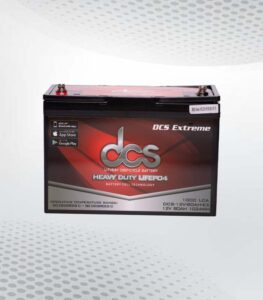As the weather gets colder, spending time outdoors can become less appealing. However, with an outdoor radiant heater, you can enjoy the crisp air while staying warm and cozy. Outdoor heaters provide a source of heat that allows you to extend your time outside, whether hosting a social gathering or simply relaxing on your patio. With various styles and fuel options, from propane to electric, an outdoor heater suits every space and need. They provide warmth, and many models add an aesthetic touch, creating a cozy ambience that enhances your outdoor experience.
Home Radiant Heating Systems Enhancing Comfort
Home radiant heating systems, especially those designed for outdoor use, offer a unique and efficient way to enhance comfort in any outdoor setting. Unlike traditional heating systems that warm the air, radiant heaters emit infrared heat that directly warms objects and people nearby. This heating method is particularly beneficial outdoors, where warm air can easily be lost to the surrounding environment. By focusing the warmth directly where it’s needed, radiant heaters ensure the heat is not wasted, providing a cozy atmosphere even on the chilliest evenings.
The technology behind radiant heating systems allows for an even distribution of heat, eliminating cold spots and creating a consistently comfortable environment. It is ideal for outdoor patios, decks, and gardens, where people gather and enjoy leisure activities. A radiant heater’s direct warmth can significantly affect how a space is used and enjoyed, extending the outdoor season by weeks or even months.
Furthermore, radiant heaters operate quietly and do not circulate air, minimizing the spread of dust and allergens. It makes them a healthier choice for outdoor heating, contributing to a more pleasant and allergen-free outdoor experience. The gentle warmth provided by these systems mimics the natural warmth of the sun, offering a natural and inviting heat source without the glare or intensity of direct sunlight.
Radiant Heating System Cost
Homeowners must understand the implications of a radiant heating system cost for outdoor spaces. Initially, the expense associated with purchasing and setting up an outdoor heater may be significant. However, the true value of these heaters is realized over time through their durability, minimal maintenance requirements, and the extended use they allow of your outdoor areas. Unlike other outdoor additions that may require regular, costly upkeep, an outdoor heater is a one-time investment that pays dividends in the form of increased usability of outdoor spaces, even in cooler months.
It’s also important to factor in radiant heaters’ energy efficiency. They target warmth directly to objects and people, reducing the energy wasted in heating the air, which translates into lower operational costs than traditional heating methods. This efficiency saves money in the long run and contributes to a more sustainable environment by reducing energy consumption.
When considering the purchase of an outdoor heater, homeowners should also consider the potential increase in property value. An outdoor space that can be utilized year-round is a significant selling point, potentially increasing a property’s market appeal and value. This aspect, combined with the cost savings from the heater’s energy efficiency and the low maintenance required, underscores the financial wisdom of investing in a radiant heating system for outdoor spaces.
Boosting Social Gatherings and Entertainment
The presence of an outdoor heater at social events can dramatically transform the ambiance of any gathering. Imagine the warmth and comfort your guests will feel as they mingle under the stars, unbothered by the dropping temperatures. This enhancement not only prolongs the duration of your event but also elevates the overall experience for everyone involved. Outdoor heaters are not just functional but a catalyst for creating memorable moments.
During those chillier months, when the thought of an outdoor event might seem daunting, an outdoor heater becomes a beacon of possibility. It encourages people to step outside, embrace the fresh air, and enjoy the beauty of nature without the discomfort of the cold. From casual backyard get-togethers to more formal outdoor celebrations, adding warmth ensures that your event is not confined by the seasons.
Moreover, outdoor heaters add a layer of elegance and sophistication to your gatherings. They can serve as a central feature around which guests can gather, providing light and a cozy atmosphere that invites conversation and relaxation. This is particularly beneficial for events that transition from day to night, where the temperature drop might otherwise deter guests from staying.
Increasing Property Value and Appeal
An outdoor heater not only transforms your personal outdoor living experience but also enhances your property’s marketability. The allure of a year-round usable outdoor space is undeniable in today’s real estate market. Such a feature distinguishes your home from others, appealing to prospective buyers who envision themselves enjoying the outdoors regardless of the season. Adding an outdoor heater signals a thoughtful investment in the property, prioritizing comfort and versatility in outdoor living.
Investing in an outdoor heating system can be a strategic move for homeowners looking to increase their property’s desirability. It suggests a luxury that extends beyond the interior, offering a glimpse of a lifestyle that is both elegant and connected to the natural environment. This perceived increase in living space and quality can significantly impact the overall appeal of your property.
Moreover, as previously discussed, outdoor heaters’ practical benefits, such as their energy efficiency and low maintenance, serve as additional selling points. These features contribute to the outdoor space’s day-to-day enjoyment and resonate with eco-conscious buyers and those mindful of long-term cost savings.
Types of Outdoor Heaters and their Benefits
Propane Heaters
Propane heaters are popular for their portability and ease of use. They can be easily moved to different locations within your outdoor space, making them ideal for gatherings where the seating arrangement might change. These heaters warm up quickly, providing instant comfort for you and your guests. Additionally, propane heaters are known for their high heat output, which makes them suitable for cooler climates where a significant amount of warmth is necessary.
Electric Heaters
Electric heaters offer convenience and simplicity. They require no fuel storage, making them safer for families and pets. Electric models range from freestanding units to wall-mounted options, providing flexibility in design and placement. Their operation is quiet and clean, with no emissions, making them an environmentally friendly choice. Electric heaters are particularly suited for enclosed or semi-enclosed spaces where ventilation for gas is a concern.
Natural Gas Heaters
Natural gas heaters are the go-to for permanent outdoor heating solutions. They connect directly to your home’s natural gas supply, eliminating the need to refill propane tanks or manage electrical cords. Given the lower cost of natural gas compared to other fuel sources, this type of heater is cost-effective for long-term use. Natural gas heaters can provide consistent warmth over a large area, making them perfect for spacious outdoor settings.
Energy Efficiency of Electric Radiator Heater
Electric radiator heaters are renowned for their energy efficiency, a significant advantage for homeowners looking to reduce their carbon footprint and utility bills. These heaters convert almost 100% of the electrical energy into direct heat, ensuring minimal energy is wasted during operation. This efficiency is further enhanced by their ability to provide targeted warmth in outdoor spaces, allowing for precise heating of areas most needed.
The design of these heaters facilitates a quick and even distribution of heat, eliminating the need for preheating and reducing overall energy consumption. Additionally, many electric heaters come with adjustable settings and timers, giving users complete control over heating times and intensity. This maximizes energy efficiency and contributes to a more personalized outdoor heating experience.
By choosing an electric heater, users can enjoy the benefits of effective outdoor heating and energy-saving features that align with eco-friendly living practices. These heaters are often designed with safety features such as automatic shut-off mechanisms and overheat protection, ensuring worry-free operation even in diverse weather conditions. Moreover, the sleek and modern designs of many electric radiant heaters make them an aesthetically pleasing addition to any outdoor setting.
Choosing the Radiator Heater for Your Space
Selecting the right radiator heater for your outdoor space involves careful consideration of your specific needs and the characteristics of your environment. Begin by assessing the size of the area you wish to heat, as this will determine the power requirements of the heater. A natural gas heater might be best for larger patios or decks due to its capability to provide consistent warmth over a wide area. Conversely, an electric heater could be the ideal choice for more intimate settings or areas with limited ventilation due to its safety features and lack of emissions.
Consider how frequently you plan to use the heater and in what conditions. If portability is a priority, a propane heater could offer the flexibility you need, allowing you to adjust the layout of your outdoor space as desired. On the other hand, for those seeking a more permanent heating solution with minimal maintenance, a natural gas heater that connects directly to your home’s supply might be the most convenient option.
Lastly, consider the aesthetic you’re aiming for in your outdoor space. Many heaters come in designs that can complement your existing outdoor decor, enhancing the ambience of your gatherings. By weighing these factors carefully, you can choose this heater that not only meets your functional needs but also adds to the enjoyment of your outdoor living area.
Safety Tips and Maintenance Practices
Proper Installation
Ensuring your outdoor heater is correctly installed is the first step to safe operation. Always follow the manufacturer’s guidelines or hire a professional to install your heater, especially for fixed models like natural gas heaters. This guarantees a secure connection to power sources and reduces the risk of accidents.
Regular Inspections
Conduct regular checks on your outdoor heater to identify any potential issues. Look for signs of wear, damage, or blockages in the vents. For gas heaters, checking the connections for leaks is crucial. Use soapy water to detect any gas leaks, and never ignore the gas smell around your heater.
Clear Surroundings
Maintain a safe distance between the heater and combustible materials, including furniture, curtains, and plants. A minimum clearance, as specified by the manufacturer, helps prevent fires. Also, ensure the heater is placed on a flat surface to avoid tipping over.
Correct Operation
Familiarize yourself with your heater’s operation. Never leave it running unattended, and ensure it’s turned off before going to bed or leaving the house. Avoid using outdoor heaters in enclosed spaces to prevent carbon monoxide buildup.
Storage and Cleaning
When not in use, especially during warmer months, store your heater in a dry, covered area to protect it from weather damage. Clean your heater regularly to remove dust and debris that could affect its efficiency and safety. Follow specific cleaning guidelines from the heater’s manual to ensure proper maintenance.
Conclusion
An outdoor radiant heater emerges as an indispensable asset for those seeking to enrich their outdoor living experience, offering a blend of warmth, aesthetic appeal, and the flexibility to enjoy the outdoors irrespective of the season. They facilitate memorable social gatherings by creating a comfortable and inviting ambience and contribute significantly to enhancing a property’s value and appeal. With the diverse range of heater types available, each catering to different preferences, needs, and space considerations, selecting the perfect heater can seamlessly integrate into your lifestyle, ensuring your outdoor spaces are utilized to their fullest potential.
FAQS
Q: Are Outdoor Heaters A Fire Hazard?
A: With proper installation, use, and maintenance, outdoor heaters pose minimal fire risks. It is vital to maintain a safe distance between the heater and flammable items and ensure the device is placed on a stable, non-flammable surface. Regular inspections and adherence to the manufacturer’s guidelines significantly reduce fire hazards.
Q: Can I Leave My Outdoor Radiant Heater In The Rain Or Snow?
A: Most outdoor heaters are designed to be weather-resistant, but prolonged exposure to harsh weather can affect their longevity and performance. To extend the life of your heater, it’s advisable to cover it or store it in a dry place when not in use during severe weather conditions.
Q: What Type Of Outdoor Heater Is Most Energy-Efficient?
A: Electric heaters are generally considered the most energy-efficient option for outdoor heating. They convert almost all the electricity they consume into direct heat with minimal waste, making them an economical choice over time, especially for enclosed or semi-enclosed spaces.
| Related Business Listings |
| Contact Directory |
| Local Business Profiles |




